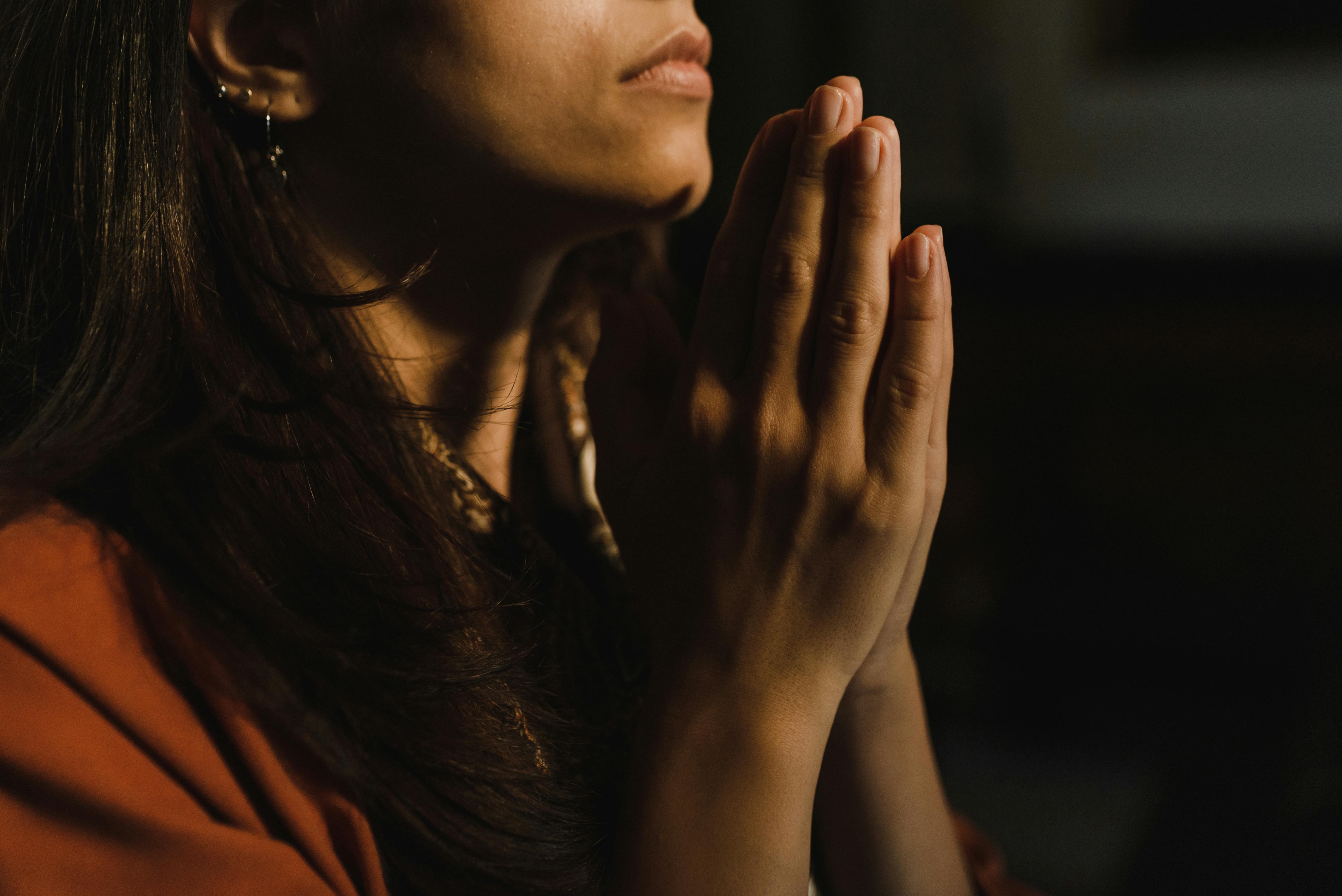Is Living Together Before Marriage Really A Sin?

College life is finally over. You and your partner have started attending a new church. You love it there. The preacher opens the Bible every week. He walks through a passage of Scripture and applies it to your life. This new church reminds you a lot of the church back home where you grew up.
So after attending for several months, you and your partner feel compelled to commit and become more involved. You sign up for the four-week membership class, eager to take this next step. In the first week, a pastor teaches all about the church’s history and mission, which excites you. In the second week, you’re refreshed and reminded of key Christian doctrines and of this church’s place in a fellowship of churches. But in the third week’s class, when the pastor begins to review the membership covenant, you get uncomfortable.
“Members affirm Scripture’s call to purity and commit to refrain from sexual activity outside of marriage.”
You and your significant other have been living together since you left the college dorms. You have only vague plans to marry sometime in the future. You glance awkwardly at your partner. Does this mean we’re . . . sinning against God?
It’s conventional wisdom today that a key step between dating and marriage is for a young man and woman to “test-drive” their relationship by living together, sharing the same house and almost always the same bed. According to a recent Barna poll, 65 percent of American adults believe cohabitation is a good idea. Even many evangelicals are ambivalent about living together and having sex before marriage, and as a recent report by Christianity Today observes, many pastors struggle to respond.
So what’s right? Is living together a healthy trial run for marriage? Is it a good way for two people to see if they’re compatible enough to make a lifelong commitment? If not, why?
Obey Jesus with Your Body
To understand this issue, it’s important to first listen to Jesus’s words. He said that to follow him means committing our whole selves, body and soul: “If anyone would come after me, let him deny himself and take up his cross and follow me” (Matt. 16:24).
Consider Jesus’s words to his disciples before he went to the cross: “If you love me, you will keep my commandments” (John 14:15). Or Paul’s words when he urged God’s people to “present [their] bodies as a living sacrifice,” a form of “spiritual worship” (Rom. 12:1).
Unlike the popular refrain “My body, my choice” that frames a lot of conversations about sexuality, Scripture says our bodies were crafted with care by a loving Creator (Gen. 1–2) from the moment of conception (Ps. 139). It also says that God’s redeemed people have bodies that serve as the “temple of the Holy Spirit” (1 Cor. 6:19–20). We cannot separate actions in the body from actions of the heart and soul.
So what does God say about our bodies when it comes to sexuality?
God’s Design for Sex
First, the Bible tells us what sexuality is for. God, after all, is the One who created our bodies and human sexuality. From the beginning, he reveals his purpose for sex. Genesis says, “Therefore a man shall leave his father and his mother and hold fast to his wife, and they shall become one flesh” (Gen. 2:24). This means sex is designed to be a part of a one-flesh union, a commitment made between a man and woman before God in the covenant of marriage. Both Jesus and Paul affirmed this (Mark 10:7–9; Eph. 5:31–33).
We cannot separate actions in the body from actions of the heart and soul.
Paul says marriage is a sign and a symbol embedded in creation to point to Christ’s love for his church. Not only is God’s design for our sexuality good for our flourishing, but it has cosmic implications. Our willingness to reserve our bodies for the one to whom we’ve committed our lives makes a statement to the world about Christ’s committed love for his Bride.
This is why Scripture considers sex outside of a marriage between one man and one woman always to be sin. Consider Ephesians 5:1–3: “Therefore be imitators of God, as beloved children. And walk in love, as Christ loved us and gave himself up for us, a fragrant offering and sacrifice to God. But sexual immorality and all impurity or covetousness must not even be named among you, as is proper among saints.”
Or Hebrews 13:4: “Let marriage be held in honor among all, and let the marriage bed be undefiled, for God will judge the sexually immoral and adulterous.”
These are just two of numerous New Testament passages that label sexual activity outside marriage as sin. Scripture illumines what we instinctively know: Sex is more than a pleasurable transaction between two consenting adults. Even many who don’t share the Christian faith are starting to acknowledge this. Consider Louise Perry, the British journalist whose book The Case Against the Sexual Revolution admits the prevailing “consent” ethic of the sexual revolution has failed. We must all acknowledge the deeply emotional and spiritual oneness involved when a man and a woman join in physical intimacy.
Our bodies aren’t autonomous. We belong to our Creator. We’re not our own. What’s more, we’re indwelled by God’s Spirit as his temple (1 Cor. 6:15–20). So sexual activity outside marriage is a serious sin against God. It’s not unforgivable. It’s not beyond God’s redeeming and restoring grace. But what we do with our bodies matters to God, and if we’re committed to following Jesus, we’ll be committed to following his plan for our lives, including sex.
Cohabitation Lessens Commitment
So couples should avoid living together before marriage out of obedience to Christ. But there are also pragmatic reasons to reject cohabitation. God’s rules for our sexuality aren’t meant to be arbitrarily restrictive. They’re for our flourishing. According to the latest research, living together doesn’t always lead to greater relational commitment, or to marriage.
One study showed that six years after they started cohabitating, 54 percent of couples had broken up and only 33 percent had married. Even those living together who do get married find it more difficult to keep this commitment compared to those who don’t. Another survey found cohabitating couples who married had a higher likelihood of divorce than those who didn’t. One scholar says, “By living together already, both parties have likely developed a thought pattern of ‘what if this doesn’t work out,’ thinking [they] could just move out and move on, which can undermine that sense of commitment that is essential to a thriving marriage.” This is exactly right.
Rather than serving as a rehearsal for marriage, cohabitation builds the wrong habits. Putting physical intimacy before commitment trains your heart to look for an escape hatch when things go bad. But by first making a covenant with vows before God and witnesses, a husband and wife put their commitment before their intimacy. This order frees each spouse to fully trust the other with his or her most vulnerable self (in the sex act) without fear of abandonment. Tim Keller accurately described cohabitation as “one long audition.” Rather than cementing a commitment, living together often leads to relational dysfunction and what researchers call “serial cohabitation.”
Putting physical intimacy before the commitment trains your heart to look for an escape hatch when things go bad.
“One long audition” is a subconscious but real attack on the meaning of love, which is a binding commitment through the best and worst times. The act of physical intimacy was designed by God as a symbol and celebration of that oneness, not as a proving ground for love. One female commentator lamented the lack of commitment: “When you are cohabiting with somebody, you are essentially playing the role of a wife for free. . . . Why get married?” Without a covenant, without a promise of “till death do us part,” one cannot know and be fully known by the other. There will be fear of abandonment, a holding back of vulnerability and true intimacy, a sneaking feeling in the back of the mind that your “partner” could simply walk away.
Sadly, many do. Michael McManus found that “couples who live together are gambling and losing in 85 percent of the cases. Many believe the myth that they are in a ‘trial marriage.’ Actually it is more like a ‘trial divorce.’” This should remind us again of how Paul points to marriage as a signpost of Christ’s committed love for his church. His love for us as his Bride isn’t conditional but guaranteed by his blood. So our knowledge that he’ll never leave drives us to more fully know him.
What Should You Do?
Let’s go back to the couple I described at the beginning of this essay. Assuming they want to obey Christ and create the conditions for a faithful, joyful marriage, what’s their next step? If their situation describes yours, what should you do?
1. Turn to Christ.
While sex before marriage is a grievous sin against God, it’s not an unpardonable sin. Jesus died on the cross and shed his blood for your sins. First John 1:9 reminds us that if we confess our sins, he is faithful and just to forgive us and to cleanse us from unrighteousness.
If you’re a Christian in a sinful cohabitating relationship, find forgiveness at the cross. If you’re not yet a Christian, if you haven’t put your faith in Jesus as Savior and Lord, turn from your sins and accept Christ’s free offer of salvation (Eph. 2:8–9). Romans 10:9 says, “If you confess with your mouth that Jesus is Lord and believe in your heart that God raised him from the dead, you will be saved.”
2. Commit to radical obedience.
What does obedience look like specifically? Because repentance involves turning away from sin, you should immediately make the arrangements necessary to stop cohabiting, even if this involves some short-term sacrifice.
If you both envision getting married, there are a few paths forward. One option is to ask your pastor to conduct a simple wedding as soon as possible, though you may want to plan a more formal ceremony with family and friends later. Another option is for one spouse to move out and stay with family or friends while engagement and marriage plans can be made.
Both paths will require sacrifice and changing your plans. But this sacrifice reveals your commitment to obey Christ, and it allows you and your partner to start your relationship anew with a season of abstinence that can reset your habits and begin your marriage with a healthier view of commitment, love, and intimacy.
In some situations, obedience to Christ may require more difficult choices. If you want to obey Jesus’s command and repent from sexual sin but your partner sees nothing wrong with cohabitation, it may be necessary to lovingly but firmly confront your partner or even break off the relationship. While difficult, doing so is worth it. Your allegiance to the One who died for you must be greater than your short-term, personal desires.
3. Know you’re not alone.
Your allegiance to the One who died for you must be greater than your short-term, personal desires.
If you’re following Jesus in obedience, you’re guided, empowered, and comforted by his Spirit. Moreover, you’re a member of a new church family that can offer love and support. Don’t be afraid to lean on them during this time. A godly church will stand with you as you commit to obey Christ no matter the cost.
Living together before marriage may be a cultural norm. To practice anything else may seem strange and old-fashioned. Yet the way of Jesus is countercultural. Resisting cohabitation is born out of love for and trust in the God who created you to pursue what’s better: genuine marital intimacy built on a foundation of commitment and covenant.

